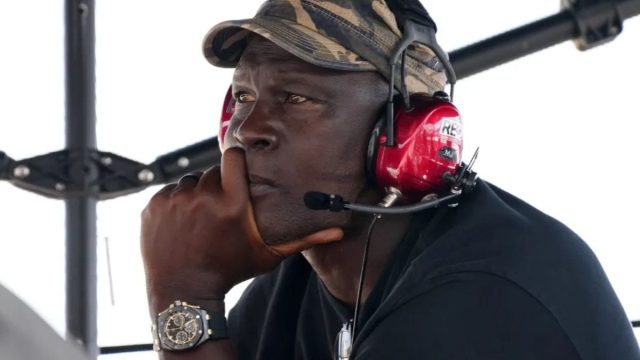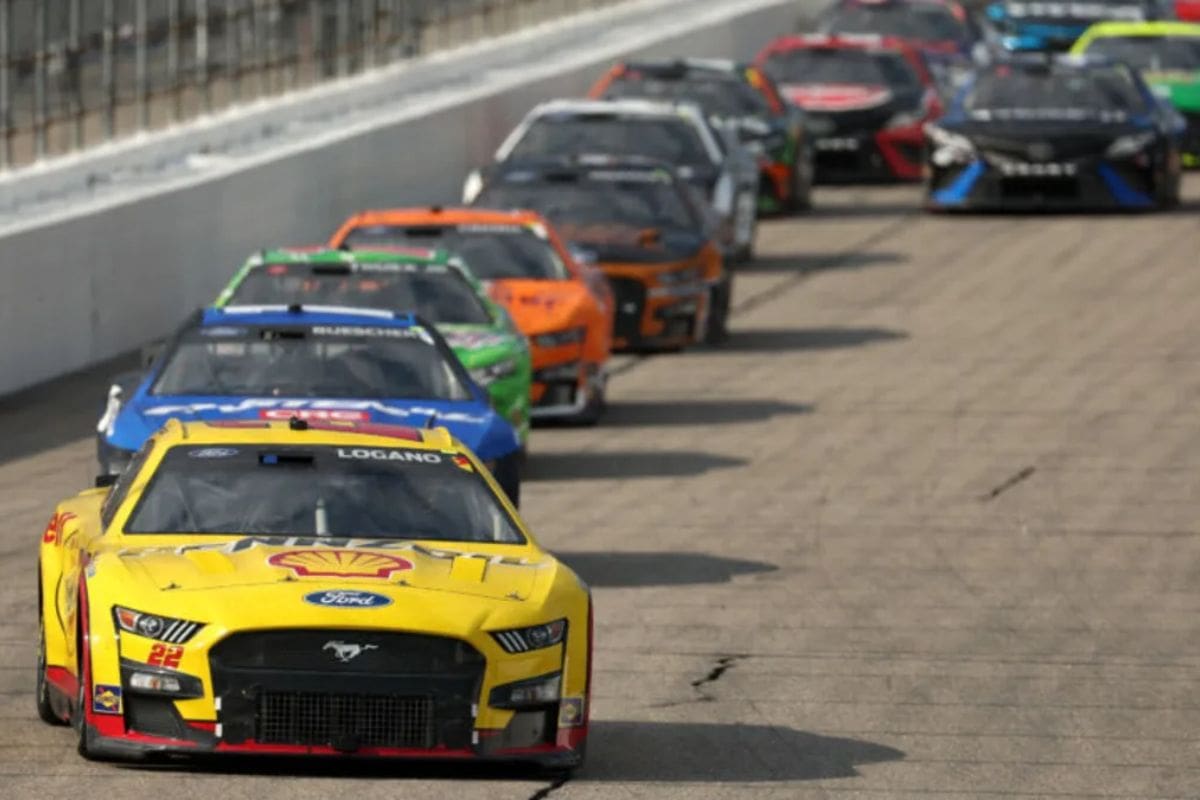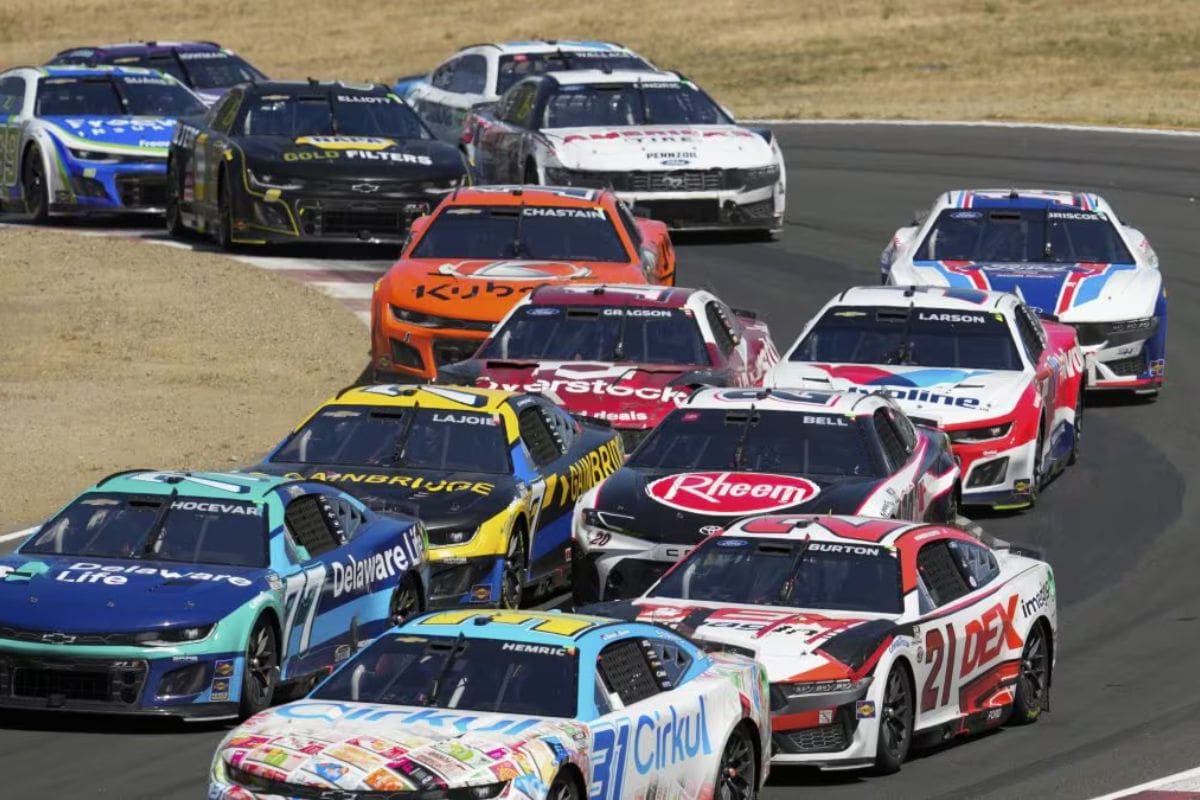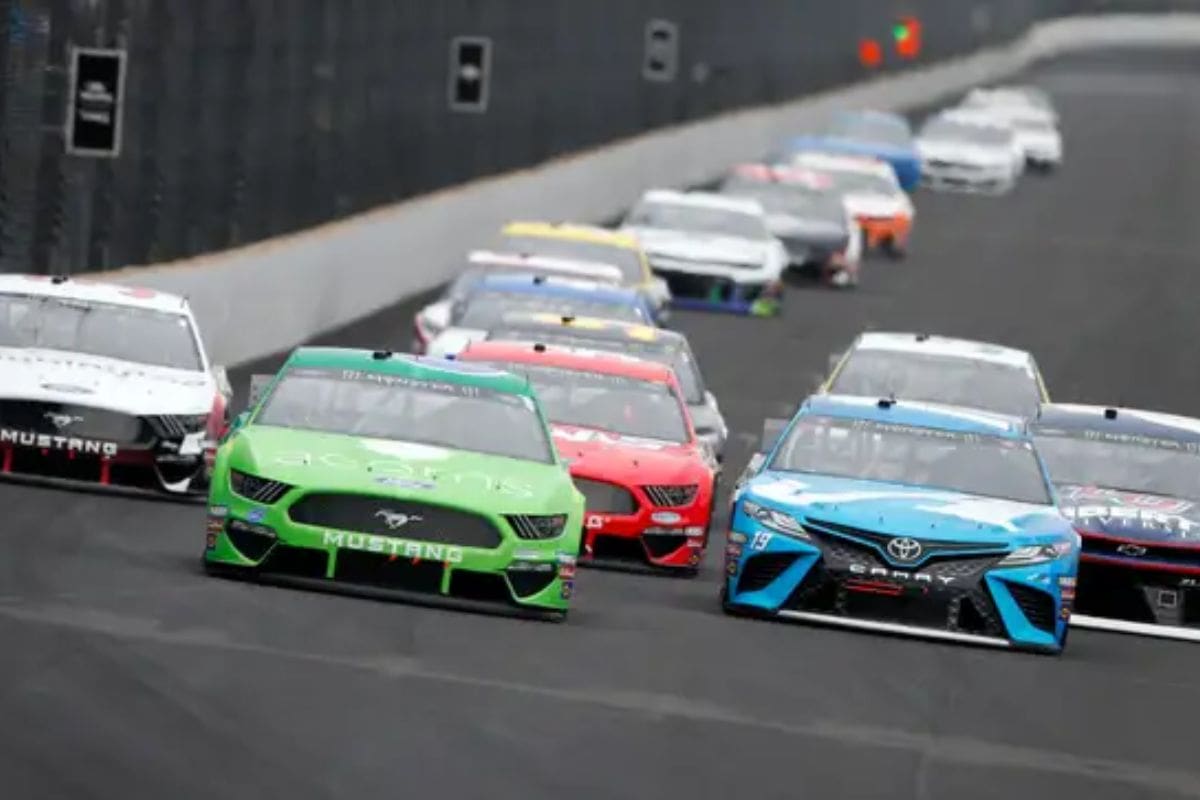Michael Jordan Lacks Charter War Support: The complexities surrounding Michael Jordan’s involvement in NASCAR, particularly through 23XI Racing, reveal considerable gaps in support during the ongoing charter war. Despite his monumental brand influence, insiders suggest that structural issues, particularly the absence of a charter, undermine his competitive standing. This dichotomy raises critical questions about the effectiveness of celebrity endorsements in a sport governed by rigorous financial and regulatory frameworks. As the charter debate unfolds, the implications for Jordan’s team and the broader NASCAR landscape invite further scrutiny of the intersection of fame and competitive viability. What lies ahead for 23XI Racing in this evolving narrative?
Key Highlights
- Michael Jordan’s 23XI Racing faces challenges due to NASCAR’s top-down governance, limiting their influence in the charter negotiations.
- The lack of dialogue from NASCAR has left team owners, including Jordan, without adequate support in the ongoing charter dispute.
- Many team owners, including those aligned with Jordan, feel pressured to comply with the new charter agreement, reducing their bargaining power.
- Jordan’s brand recognition is significant, but without a charter, leveraging this influence for sponsorships and partnerships becomes challenging.
- The tight timeframe for negotiations and fear of missing out on revenue exacerbate the struggle for 23XI Racing in the current charter landscape.
Growing Controversy Over New Charter Agreement
The impending implementation of the new charter agreement has sparked a considerable separation within the NASCAR community, with a growing chorus of dissent among team owners. Scheduled to take effect at the outset of the 2025 season and lasting until 2031, this agreement promises guaranteed race spots for signatory teams, yet has ignited substantial controversy regarding its implications for competitive equity and team autonomy.
The reaction among team owners has been polarized. Early adopters like Brad Keselowski of RFK Racing have accepted the new charter, viewing it as a pathway to stability and increased revenue. Conversely, teams such as Front Row Motorsports and Michael Jordan and Denny Hamlin’s 23XI Racing have openly expressed their skepticism, suggesting that NASCAR’s approach is heavy-handed and lacks transparency.
This schism highlights a critical issue: the apprehension that the charter agreement may disproportionately favor certain teams while marginalizing others.
Central to the growing discontent is the perception that NASCAR is attempting to impose the agreement without sufficient dialogue or consideration for the diverse needs of its stakeholders. While some team owners may benefit from a structured framework, others fear that the rigidity of the charter system could stifle innovation and competitive spirit within the sport.
As discussions continue, it is evident that the consequences of this agreement will reverberate throughout the NASCAR landscape, influencing not only team dynamics but also the general integrity of the racing experience. The outcome remains uncertain, but the stakes are undeniably high.
Teams Likely to Yield to NASCAR’s Demands
How will the demands from NASCAR’s new charter agreement affect the decisions of multiple teams? The glaring reality is that many teams will likely acquiesce to NASCAR’s stringent terms, prioritizing financial stability over autonomy.
The recent media rights deal, valued at an impressive $7.7 billion, presents a lucrative opportunity that team owners cannot afford to overlook. This financial influx is perceived as a remedy to one of the sport’s most urgent challenges—securing sponsorships.
However, this perceived boon comes with strings attached. The hurried nature of the agreement, as noted by Jordan Bianchi, exemplifies the duress placed on teams to conform. Teams received a detailed 105-page charter agreement with a mere few hours to deliberate. Such a tight timeframe stifles meaningful negotiation and diminishes the bargaining power of individual teams.
“NASCAR, from what we understand them sends the 105-page charter agreement to the teams around 5 or 6 pm from what we were told on Friday night and they say you guys have until midnight to sign this.” – Bianchi
So, about the charter agreement … what do you know, Jeff and Jordan? 🖋️ pic.twitter.com/zJsJOic1N0
— Dirty Mo Media (@DirtyMoMedia) September 9, 2024
While some may view the agreement as a necessary compromise for financial gain, others express discontent, signaling a growing rift within the NASCAR community.
Teams with fewer resources or less negotiating influence are more likely to capitulate. Their fear of missing out on potential revenue and sponsorship opportunities outweighs the desire for a more favorable arrangement.
As dissent simmers among the ranks, the question remains: will this compliance lead to long-term stability, or will it sow the seeds of discontent that could challenge the integrity of team autonomy in NASCAR?
NASCAR’s Unilateral Approach Criticized
NASCAR’s recent charter agreement has not only raised eyebrows but also sparked considerable criticism regarding the organization’s unilateral approach to governance. This top-down strategy has left many team owners feeling sidelined and voiceless, a sentiment echoed by insiders who reveal a troubling landscape of discontent within the ranks of ownership.
Remarkably, 13 of the 15 team owners reportedly harbor considerable disapproval of the agreement, yet they appear to acquiesce under duress, likening their predicament to a coercive environment evocative of a “communist regime.” Such glaring comparisons highlight the precarious position in which team owners find themselves.
“13 of the 15 team owners are not thrilled, but they fall in line. We have posted a story on The Athletic with a bunch of quotes from various team owners, most of whom did not want to be identified for fear of retribution. Is been compared to putting a gun in our head. One said, communist regime.” – Bianchi
The overwhelming majority have signed the charter agreement, often in fear of potential retribution, suggesting a culture of intimidation rather than collaboration. The lack of transparency and dialogue from NASCAR raises fundamental questions about the organization’s commitment to its stakeholders, particularly those whose very operations fuel the sport’s vibrancy.
Teams like Front Row Motorsports have begun to voice their concerns, laying bare the dissatisfaction simmering beneath the surface. Yet, it is 23XI Racing, co-owned by Michael Jordan, that stands as a symbol of resistance against this unilateral governance.
23XI Racing’s Firm Stance
While many teams have reluctantly accepted NASCAR’s charter agreement, 23XI Racing has adopted a defiant stance, signaling a desire for meaningful dialogue amid the prevailing discontent. This team, co-owned by Michael Jordan and Denny Hamlin, is not merely contesting the agreement; they are positioning themselves for a more favorable negotiating landscape. Their recent statement highlights an intention to engage constructively with NASCAR, aiming for resolutions that benefit the sport as a whole.
“We notified NASCAR what issues needed to be addressed in writing, at the deadline. We are interested in engaging in constructive discussions with NASCAR. To address these issues and move forward in a way that comes to a fair resolution, while strengthening the sport we all love.” – 23Xi Racing
The firm stance taken by 23XI Racing can be distilled into several key aspects:
- Strategic Investment: Their commitment to NASCAR is emphasized by substantial investments, aiming to reshape their competitive edge.
- Desire for Dialogue: The team has explicitly expressed interest in constructive discussions, emphasizing the importance of addressing the issues that inhibit fair negotiations.
“Please don’t ask me about my Charter. I don’t want to disparage NASCAR and lose it.” – Polk
- Public Demonstration of Frustration: Curtis Polk’s symbolic act at the season finale exemplifies the growing tensions and the team’s unwillingness to accept the status quo.
- NASCAR’s Response: The absence of NASCAR representatives during a critical trophy presentation signals a broader disconnection between the governing body and 23XI Racing.
As the situation evolves, the implications for both 23XI Racing and the sport could be profound, challenging the existing dynamics of power within NASCAR.
Future of 23XI Racing and the Charter Agreement
The ongoing standoff between 23XI Racing and NASCAR over the charter agreement presents a significant moment for both the team and the sport. As the landscape of competitive motorsports evolves, the implications of this dispute are profound, potentially influencing the future direction of NASCAR itself.
The charter system, designed to stabilize team operations and guarantee financial viability, is now at a crossroads that threatens to reshape the dynamics of team participation.
23XI Racing, co-owned by basketball icon Michael Jordan, has emerged as a formidable contender since its inception. However, the lack of support for their charter negotiations highlights underlying tensions within NASCAR, particularly concerning equity and access in the racing ecosystem.
The current impasse not only hampers 23XI’s competitive edge but also raises questions about the long-term sustainability of new teams within the series.
Resolution of this standoff seems uncertain. The complexities of the charter agreement, which intertwine financial incentives with competitive balance, require careful navigation.
Should 23XI Racing fail to secure a favorable outcome, it may lead to diminished resources and stunted growth, hampering the team’s ability to attract talent and sponsors. Conversely, a favorable resolution could solidify 23XI’s position and encourage further investments in the sport.
News in Brief: Michael Jordan Lacks Charter War Support
The ongoing charter war in NASCAR highlights the limitations of celebrity involvement in a highly regulated sport. While Michael Jordan’s prominence brings visibility to 23XI Racing, the absence of a charter greatly hampers competitive potential. The situation emphasizes the importance of structural support, financial resources, and tactical alliances in maneuvering through the complexities of the racing industry. Ultimately, success in NASCAR requires more than brand recognition; it necessitates an all-encompassing approach to addressing inherent challenges within the sport’s governance framework.
ALSO READ: Michael Jordan’s NASCAR Masterplan: Will the ‘Divide and Rule’ Tactic Alter the Playoff Race?



